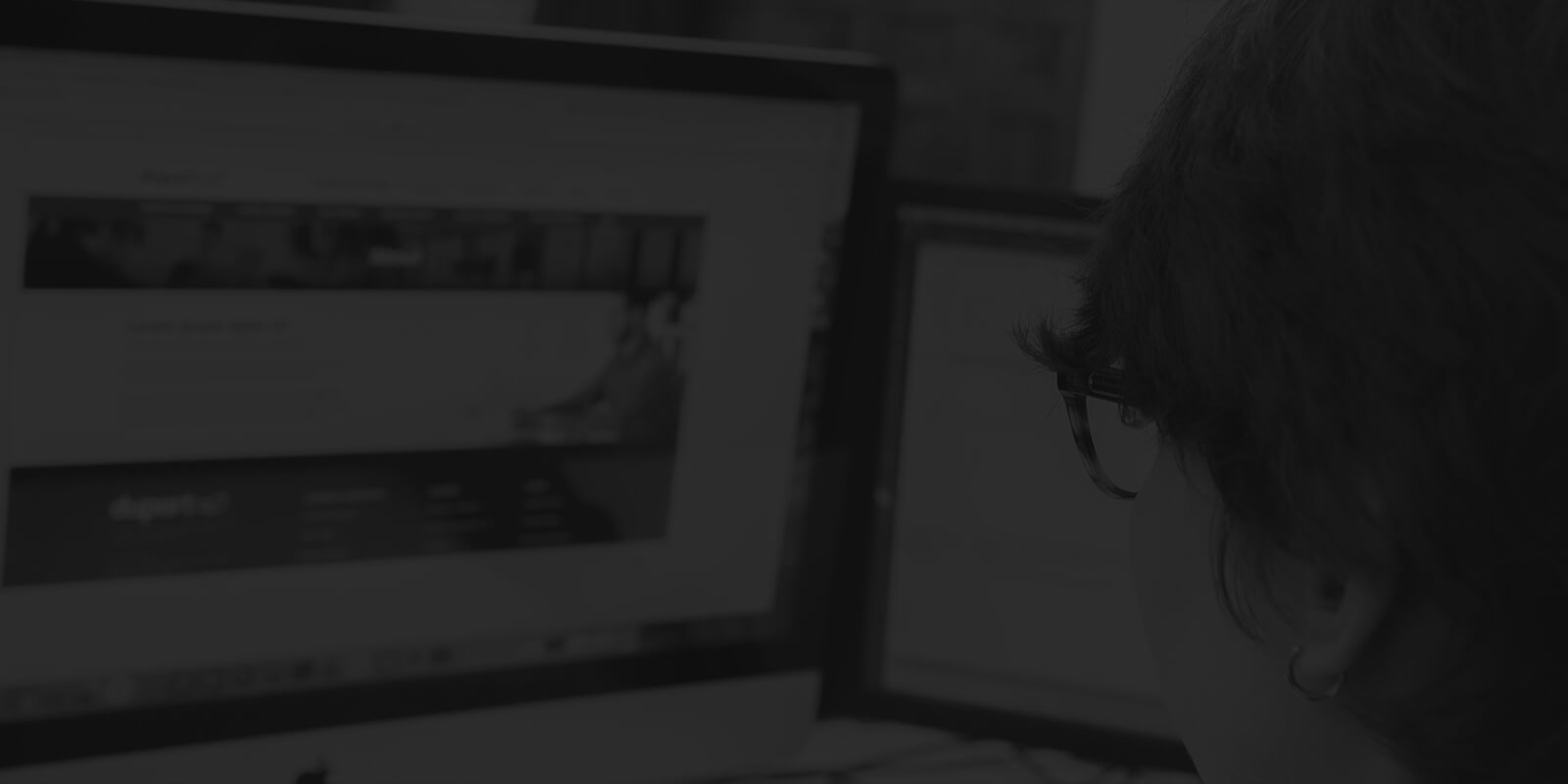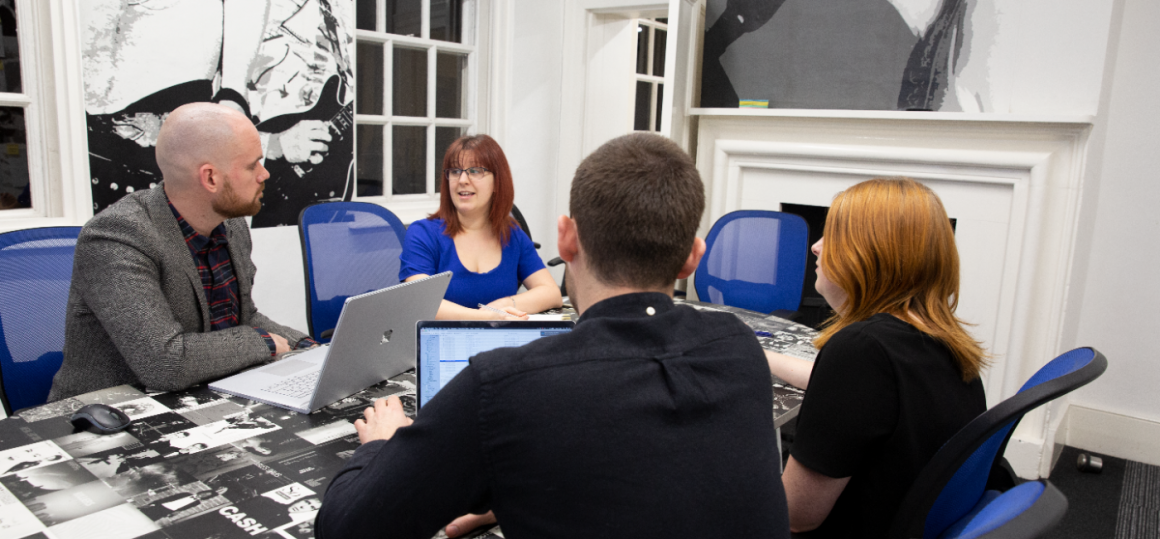When you're choosing a creative agency for your web project, the initial consultation is probably going to be the most significant factor in your decision.
This meeting should be how you find out exactly what you're going to be getting from your agency, how they work and whether their prices and availability are right for you.
It should give you a good feel for the design company's attitude and culture as well, which can be incredibly important - especially if you are looking for a long term partnership.
We think that the best way to set yourself up for a really successful web design consultation is to come prepared.
Be prepared with a little bit of research, a good idea of what you want, and some killer questions for your prospective web designers too.
This article should help you put together everything you need to prepare for your website kickoff meeting. Meaning that once your discussion is over, you'll be confident of whether this is going to be the agency for you.
Step 1 - Book a consultation!
Don't be tempted to sign up with a digital agency before you've had a real conversation with them.
Admittedly in the times of Covid-19, in-person meetings may not be an option, but having a virtual meeting or even just a phone call is an absolute necessity.
Ideally a video call is best, because it facilitates a much better exchange of ideas, and means you can do things like share screens, look at websites as a group and invite several people into the conversation.
One thing that you should look out for is a design company that sends you a price, proposal - or, worse still, a design concept before you've had a real consultation.
Getting a price before you've even discussed the web project means that the agency in question has already decided what your website is going to be - before they've actually spoken to you about it.
Those sorts of assumptions can render your new project obsolete before it even starts, wasting your time and money.
So make sure that you've had the chance to describe, debate and discuss your project and your budget with a consultation with your prospective agency.
Step 2: Prepare your website brief
The first stage in preparing to meet a web design agency is to put together a website brief.
A website brief will help shape your expectations for the project, and give your agency some background information on your business, and what you're expecting from them.
It should explain what your motivations are for the project, whether you're looking to get more leads, add new functionality or just improve how your company presents itself. You should also consider whether you'll require any additional services, such as digital marketing or website maintenance.
But remember that your website brief shouldn't be like giving your web designers instructions, it should be a framework to help them understand your goals for the project.
So it's less like handing over a recipe, and more like describing what you've got in your kitchen. Then you let the chef decide how to make you something delicious!
It's a good idea to have this brief ready to send this over to prospective website developers before you meet them. That gives them the opportunity to go through it, get a good understanding of what you want and need, and prepare their own questions for you too.
Step 3: Gather your assets
One of the things that will really help your web design agency is being able to see what assets you've gathered, as well as any branding guidelines you might have.
For example, if you can show the planned website images, your agency can take a look and let you know if they're a suitable size and format. They can also give you feedback on if there are enough of them, or whether you might need to source more by getting additional photography or using stock images.
If you are looking for your website company to provide additional branded materials, it's great to take your current versions along to your design consultation as well.
This is particularly important if you want to have assets like presentation templates. Being able to see what your current presentations include gives your agency a much better idea of the scope of that part of the project.
Step 4: Share access
If you have a website already, or other software that you want to integrate with your website, it can be incredibly useful to share access to it with your prospective digital agency.
For example, if you have certain features and functions in the back end of your website, showing how these currently work can help your agency understand what you need and expect in this project.
They may also have some suggestions on how to improve or enhance those capabilities, to make the process faster, more efficient or more useful to you.
When it comes to 3rd party integrations, again it can be useful for your agency to be able to log in to those accounts and see what that software is doing for you, as well as how it is integrated.
Another useful thing to share access to is your Google Analytics and Google Search Console accounts.
Even if you don't want your agency to manage SEO for you, being able to see how people are currently finding and using your site can be a fantastic insight into how the current website is performing. This can inform design and development decisions for the new project.
Step 5: Make notes
It really does help to take notes when you're having a website design consultation - especially if you have more than one to go to.
Taking notes will help you remember what questions each agency asked, what suggestions they made and how they responded to your queries too.
One of the brilliant things about taking notes is that you can use what you've learned, or what other creatives said, to improve your knowledge and questions for the next meeting.
You may also find that there are certain questions you don't have an answer for, or want to think about in your own time. Having a record of that can be helpful going forward.
Step 6: Ask questions
Never be afraid to ask questions during your consultation - and I don't just mean specific questions about your project either.
If there are things you don't understand, or want to know more about, then make sure you ask the question.
It can be very revealing how an agency responds.
For example, a question we get a lot is "Do you do SEO?".
The short answer is "yes". But that doesn't really answer the question properly.
So when we get asked that question, we usually take some time to explain a bit about what search engine optimisation really is. We talk about the different aspects of SEO, such as technical SEO, content marketing, local SEO and keyword research.
We make sure that the client understands what they're asking about and why it's important before we answer the question.
So asking questions obviously can get you the answers you need, but it also helps you gauge how an agency would work with you.
Are they the type of agency who says "yes" without really going into what that means?
Or are they the type of agency who wants you to understand what you're asking for, and what you'll be getting from the process?
Step 7: Next steps
Having a plan for what you want the next steps to be is really useful when you're choosing the right design agency.
If you know that after this meeting you expect to get a fully costed proposal, or a ballpark figure and follow-up meeting, or a contract ready to sign, then you should make it clear to the agency that's what you're expecting.
Sometimes they may come back and say "actually we need to take a look at x or y first", or that they need a little extra time to prepare a proposal. But at the end of the meeting, everyone should know what the next steps are going to be, and when they're expected to be achieved.

These 7 steps will help you prepare for a constructive web design meeting.
By providing everything your agency might need, you give them the best opportunity to really understand the depth and purpose of your project.
And by questioning and noting your discussions, you'll get a much clearer picture of what each creative agency is offering, and a good insight into what the working relationship is going to be like.
At Edge of the Web we really enjoy our website project consultations, as they're the best way to learn about our clients, their business and the project itself. If you'd like to set up a conversation with us to talk about your website project - please get in touch!
Get in touch
Got a question or need some help with your next web project? Our creative team is here to help, and we'd love to hear from you.










